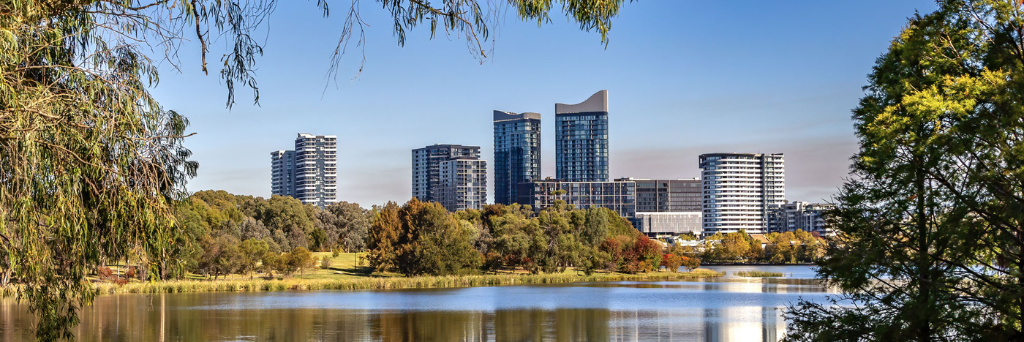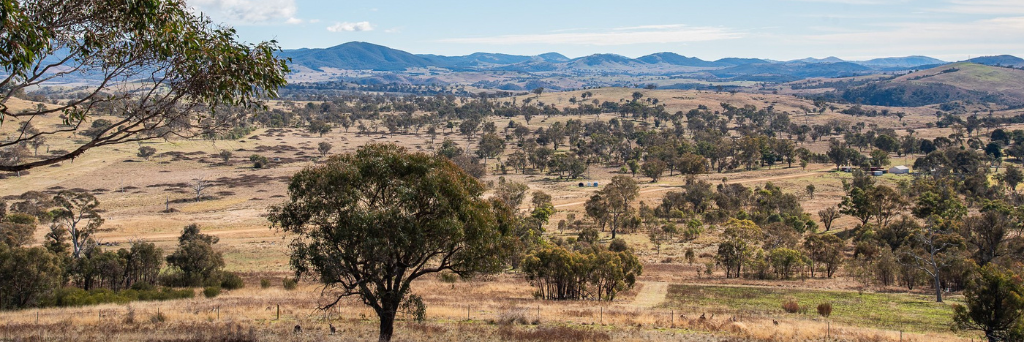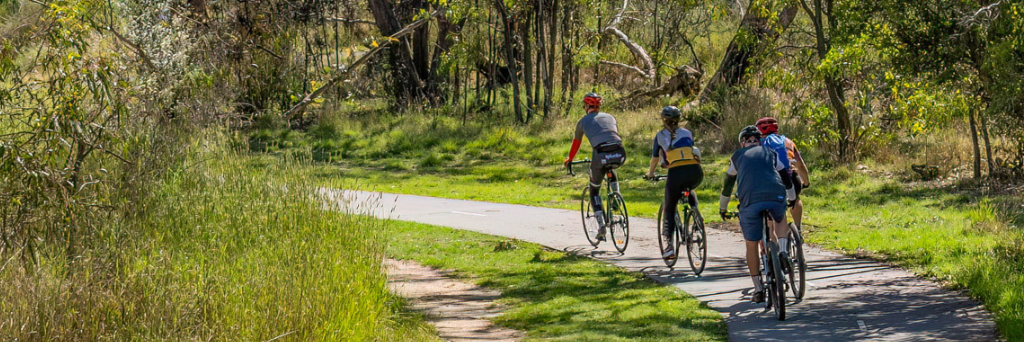Climate change is the most significant threat to the survival of all life on earth. The impacts of a changing climate are well upon us: increasingly severe fires, storms, floods, heatwaves and droughts are forcing societies and natural ecosystems to transform how they function.
In its Sixth Assessment Report (2023) the Intergovernmental Panel on Climate Change concluded that global greenhouse gas emissions must halve by 2030 if temperature rise is to be limited to 1.5oC. Despite this, Australia has the highest per capita emissions in the OECD and continues to approve new fossil fuel projects. This country is the world’s third largest fossil fuel exporter, mining 57 tonnes of fossil fuel CO2 per Australian per year — ten times greater than the world average.
Although the ACT is a small jurisdiction, it led the nation in achieving 100% renewable electricity and legislating targets of net-zero emissions and phasing out fossil gas by 2045. Even so, our actions locally and nationally to avoid further emissions and adapt to predicted changes must accelerate, be ambitious, and be guided by principles of social equity and climate justice. With cooperative commitment and purposeful public and private investment, the ACT can implement innovative policies to rapidly decarbonise all sectors, particularly transport which contributes over 60% of the ACT’s emissions (see ‘Sustainable transport’ policy) and buildings (the focus of this policy), demonstrating how to build resilience and ensure a just transition to a low-carbon economy.
- Increase service funding for SEE Change, the Canberra Environment Centre and Conservation Council ACT Region to implement safe climate activities.
- Develop a new Climate Change Strategy for 2026–2030 and beyond, in consultation with the Canberra community and the ACT Climate Change Council, with specific, funded, world’s-best-practice actions to accelerate reduction of greenhouse gas emissions and draw-down of atmospheric carbon dioxide to reach net-zero emissions as rapidly as possible, and by 2040 at the latest.
- Implement all recommendations by the Office of the Commissioner for Sustainability and the Environment for reducing Scope 3 emissions.
- As the fossil gas network makes the second largest contribution to the ACT’s emissions (after transport), by the end of 2024, publish and implement a plan for the proactive, strategic phase-out of all gas connections by 2035 (with extensions only for the most difficult-to-replace applications), including:
- From 2025, ban all new gas connections (ie revise all projects with planned gas not yet connected);
- From 2025, prohibit the installation of new gas appliances or replacement of a gas appliance with another gas appliance, and immediately ban advertising of gas appliances;
- From 2025, provide a free “case manager” service to guide households through electrification.
- Continue to fund the Sustainable Household Scheme, and review it in 2025 to identify equitable opportunities to encourage more households to electrify as soon as possible;
- Expand the Home Energy Support Program by 2025 to directly fund electrification and other energy efficiency measures for low-income and vulnerable households and social housing;
- Fund the electrification of all ACT Government assets (schools, health facilities, offices, utilities, etc) and community centres, prioritising the electrification of all social housing by 2030;
- Require all free-standing rental housing to electrify by 2030;
- Require all multi-unit and commercial buildings to issue by end-2026 a plan to electrify by 2035;
- Fund industry information campaigns and trades sector training to support this transition.
- Advocate to Australian Government for electrification funding, eg rebates, low-cost loans, taxation deductions etc
- Increase uptake of solar power, battery and energy monitoring systems, including:
- From 2025 require all new buildings to install solar power systems;
- Install solar power systems on all social housing and suitable ACT Government facilities by 2030;
- Require all existing commercial and multi-unit residential buildings to install solar power systems (wherever practicable) by 2035;
- Wherever possible, make these installations “smart” as investments in a resilient, efficient, multi-flow electricity network.
- By 2026, strengthen minimum energy efficiency standards to require all rental homes to meet 7 stars by 2035 (ie match the NCC standard for new buildings).
- Ensure that the ACT’s compliance procedures for sustainable building standards meet or exceed best practices among Australian states and territories.
- Establish an Extreme Weather Resilience Team that is responsible for coordinating all government, business and community arrangements (alerts, “climate-safe rooms”, refuges, volunteer efforts, medical support etc) are in place to ensure health and safety during severe weather events (fires, storms, floods, smoke, heat, dust, pollen etc).
- In the ACT Government’s Sustainable Procurement Policy, require suppliers to screen their supply chains to exclude all companies and financial institutions that provide support to fossil fuel projects.
- By the end of 2025, ban fossil fuel sponsorship and advertising (companies, products) in the ACT.
- By the end of 2026, pilot the use of “Climate assemblies”, managed by the ACT Climate Change Council, that randomly select Canberrans to guide decision-making on the ACT’s climate policies.
- By the end of 2026, review and update the ACT Government Responsible Investment Policy in line with the highest standards and recommendations by the Australia Sustainable Finance Institute, the United Nations Principles for Responsible Investment and ShareAction.
- Under the Urban Forest Strategy, plant and manage appropriate vegetation to sequester atmospheric carbon and improve urban resilience to a changing climate. However, this should not offset or replace direct reductions of greenhouse gas emissions.
- By 2030, improve the energy efficiency and climate resilience of buildings and grounds of all public schools, playgrounds and community centres.
- Advocate in cross-jurisdictional forums for greater ambition in emissions reduction policies and programs, an urgent end to fossil fuel production, consumption and export, and a just transition. Fossil fuel companies must bear contingent liability for climate damage and adaptation.
Photo by Lutgart Uten

Clean and Healthy Waterways
The ACT is the largest urban centre within the Murray-Darling Basin. The Ngunnawal (Ngunawal), Ngambri, Ngarigo Peoples and acknowledging all other First Nations people with connections to this region, have ongoing deep cultural roots to the water courses and byways...

Protecting Our Region’s Nature
The ACT, like the rest of Australia, is undergoing a biodiversity extinction crisis. Canberra’s mature trees are being removed at alarming rates; our faunal emblem, the Gang-gang Cockatoo is endangered; and our natural areas are at increasing risk of development and...

Sustainable Transport
Canberran residents and visitors traverse the city on millions of trips daily for employment, education, social, recreational, and household activities. Commercial, government and community sector vehicles carry goods and provide many of the services that underpin...
Take action
Nature needs us now. Our community wants to end extinctions, fully electrify and safeguard our future.Write to your local candidate asking them to commit to the asks outlined in the policy priorities document.
Ask your candidate to commit to our priority nature and climate asks:
- At community election forums
- At shopping centre stalls
- On their social media
- During radio talkback
- In letters to the editor
